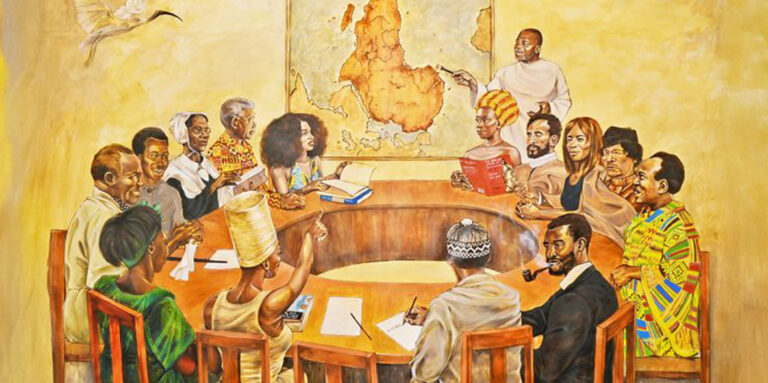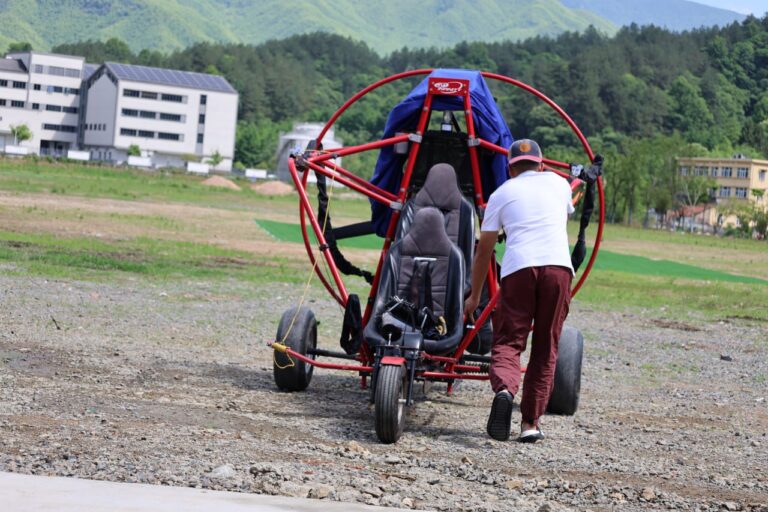I grew up in the charming town of Merti-Methera, Ethiopia, established by the Dutch agricultural conglomerate HVA, Handelsvereniging Amsterdam. This Dutch firm has a long history of large-scale farming in Ethiopia’s Rift Valley, particularly in sugar cane cultivation and processing. Designed by Dutch architects, the town features a unique European flair, with exquisite gardens filled with vibrant blooms, colorful trees, and ornamental plants celebrated for their breathtaking flowers and enchanting fragrances. The Climbing Lily, along with geraniums and petunias, serves as a prominent floral emblem of Methera, known for its striking beauty and distinctive tropical growth habit. This lush flora has enriched the region’s landscapes and gardens, significantly enhancing the well-being and quality of life for Methera’s residents.
Despite efforts to restore Merti’s former glory, the once-beautiful city has faded into history. An influx of people has overwhelmed the city’s resources, infrastructure, and services, compounded by a lack of care and maintenance. As a result, the city has lost much of its vitality and charm.
Growing up in this delightful small town and continuing my work in Ethiopia’s floriculture sector brings me a profound sense of tranquility. Surrounded by lush vegetation and vibrant flowers, I find a heightened sense of faith and peace in this verdant yet challenging environment, which serves as a sanctuary from stress.
Throughout my career, I have had the privilege of traveling extensively across Europe, Asia, Africa, and beyond. During these journeys, I noticed intriguing parallels between my hometown of Methera and various European towns in terms of landscaping and the community’s efforts to care for, share, and celebrate flowers and green spaces. Upon returning to my hometown, I was struck by the harmonious blend of urban infrastructure and ornamental flora. The abundance of flower shops and markets reflects a modern cultural trend that not only elevates community spirit but also fosters connections, alleviates stress, and enriches the overall environment.
Recently, I had a thought: Ethiopia stands out as a prominent supplier of flowers to Europe and the Middle East, offering a remarkable variety of exquisite blooms—from roses to summer flowers, ornamental cuttings, and potted plants. With an impressive average daily export of 274 tons, the nation’s annual flower production reaches 100,000 tons. Many believe that this flourishing flower industry fosters a sense of value and connection to nature among urban residents in Europe, ultimately enhancing their self-esteem. If this is indeed the case, why shouldn’t the people of Addis Ababa enjoy the same enriching benefits? Certainly, there exists a delicate balance between export demands and domestic consumption. Critics argue that this tension arises as the government prioritizes increasing export volumes while navigating the needs of the home market.
On the other hand, the middle class in the main towns of Ethiopia is expanding at an extraordinary pace, driving increased demand and purchasing power that is reshaping the country’s business and commercial landscape. The capital city, Addis Ababa, is home to 134 embassies, 28 UN agency offices, and 2,953 civil society organizations. This trend, combined with the presence of diverse cultural institutions, is expected to create substantial demand for flowers to beautify office spaces, meeting halls, and for occasions such as birthdays, anniversaries, weddings, graduations, and holidays like New Year, Christmas, Easter, Ramadan, and Valentine’s Day.
According to a survey by the Addis Ababa City Administration Revenue Bureau, there are approximately 903 flower retail shops in Addis Ababa, mainly located in Bole, Yeka Kirkos, Kolefa, Akaki-Kaliti, Nefas Silk, Addis Ketema, and Lideta. Most flowers sold in these shops are sourced from the flower-growing clusters in Ethiopia’s highland and midland regions. Unfortunately, these flowers often do not meet export standards and are known for their poor quality, including flaccid stems, faded colors, weak leaves, and poorly formed blooms. The average selling price of flowers in Addis Ababa varies significantly based on location, flower type, color, and season. A recent survey conducted in September 2025 found that the average price for a mixed flower bouquet ranges from 59 USD (8,000 Birr) to 259 USD (35,000 Birr).
While flower shops hold significant importance, the current traditional and outdated flower retail environment does not align with the progress of the innovative smart city infrastructure. The number of flower gift shops and florists in the city remains relatively low, and their facilities are often inadequate. Additionally, logistics providers and flower gift shops frequently lack the necessary cold chain facilities for transporting and temporarily storing flowers. Despite digital advancements, critics argue that the absence of aesthetic features in flower shops makes Addis Ababa feel incomplete or less inviting, highlighting the need to balance modernity with elements that enhance the quality of life and community spirit. The significance of both formal and informal education in the floristry industry has largely been overlooked, with a notable lack of training in areas such as flower arrangement, design techniques, personal style development, the art of combining flowers and plants, nature-inspired aesthetics, and floral shaping. Typically, no courses are available through colleges, public or private post-secondary vocational schools, or professional associations.
Currently, the corridor development project in Ethiopia is transforming Addis Ababa and other cities into vital commercial hubs, generating new economic opportunities. This initiative has led to improved infrastructure, expanded recreational areas, enhanced connectivity, increased business competitiveness, and a better overall quality of life. Many now believe that Addis Ababa is evolving into a vibrant and dynamic global city. This transformation is characterized by the establishment of smart infrastructure aimed at promoting a strong economy and positioning the city as a tourism hub, reflecting a modern vision inspired by other major cities worldwide.
In this context, the flower industry is at a crucial point in its growth. The emergence of retail flower shops is expected to significantly enhance the city’s aesthetic evolution. In line with this progress, the Ethiopian Investment Board introduced Directive 1001/2024 in March 2024, allowing engagement in business sectors that were previously off-limits. Under this directive, foreign investors can now participate in trading activities, including wholesale and retail flower businesses.
The entry of investors into the flower retail and wholesale sector is believed to bring significant changes to the aesthetic value of Addis Ababa and improve the quality of urban life. Additionally, some foreign investors in Ethiopia are attempting to establish a florist university and college in the main city. The college aims to offer courses in floral design, floral arrangement training, plant care, and the business skills necessary for running a florist shop.
Addis Ababa has recently garnered significant attention, both domestically and internationally, with over a dozen visitors exploring development and business opportunities. This increased interest can be attributed to a growing focus on commercial activities. The city has become a testing ground for various initiatives, such as hanging flower decorations, hillside forest preservation, sidewalk flower planting, and river cleaning efforts.
Hanging flower decorations along Addis Ababa’s main roads, including Bole, Kasanchis, and Megenagn, are becoming a new phenomenon. Proponents of smart cities argue that one of the key benefits of these decorations in urban centers is their ability to transform gray, monotonous spaces into more attractive environments. Concrete buildings, sidewalks, and roads often feel cold and impersonal, but the addition of colorful flowers has completely changed the city’s atmosphere, making it feel more pleasant. Furthermore, incorporating ornamental plants into city centers positively impacts residents’ health. Urban greenery, such as hanging floral decorations, potted plants, and flower meadows, enhances both the physical and mental well-being of residents, thereby improving the overall quality of life.
In the future, the symbolic significance of flowers will continue to resonate within Addis Ababa’s cultural landscape. Floral patterns inspired by hibiscus and bougainvillea are expected to flourish, embodying the beauty and resilience of the nation. These blossoms will become increasingly central to the branding of Ethiopian tourism, with their vibrant hues capturing the allure and tropical essence of the country.
Mekonnen Solomon is Horticulture Export Coordinator at Ministry of Ethiopian Agriculture





